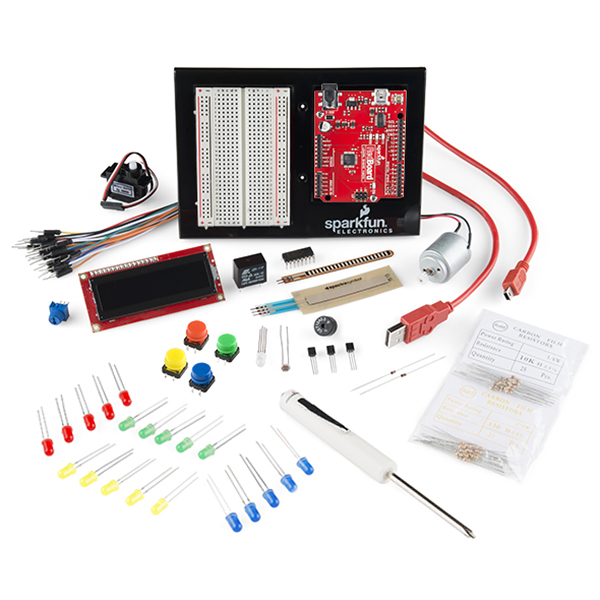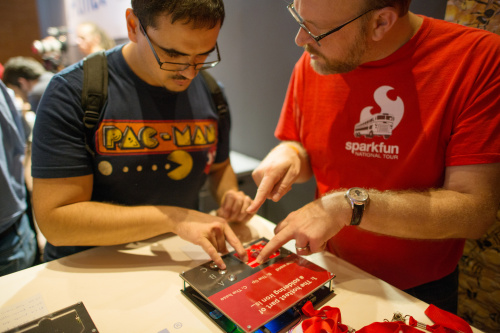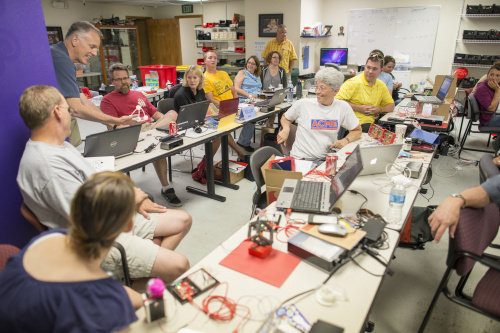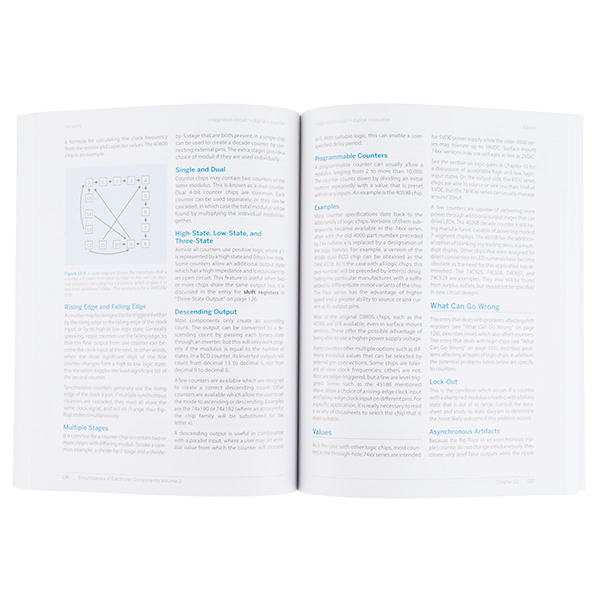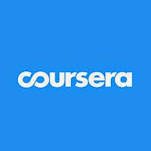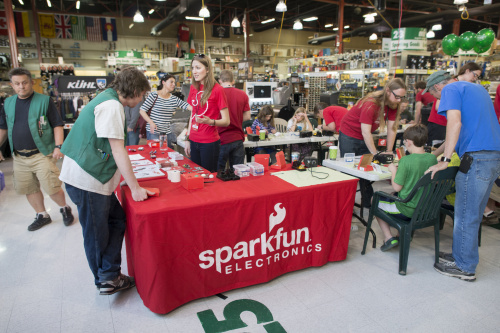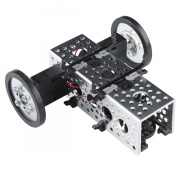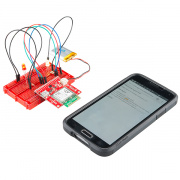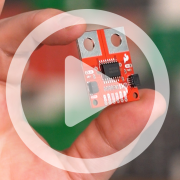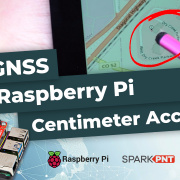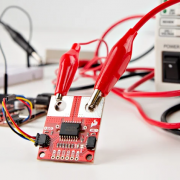Enginursday: Beyond Learning Arduino
What comes next?
Over the past few months, most of the discussions I've had regarding getting people into electronics have shifted to what's next after going through the beginners' kits like the SparkFun Inventor's Kit. I'll explain some of the ideas that have come to mind, and I want to see what you guys think as well.
One of the main goals here at SparkFun is putting electronics within reach for most, if not all people. It's what we strive for with our tutorials, educational outreach and starter kits. Electronics can be a scary endeavor that poses so many "snag points" that could immediately turn someone off of learning more. Starter kits like the SIK do a good job of keeping learning electronics and coding through Arduino rewarding, with small but meaningful payoffs or achievements with each project in the guide. Over many iterations of this guide, it's definitely become a front runner for learning electronics. But what happens once you've completed these starter kits?
This is where it gets confusing, because there are so many routes you can take. Think of it like a choose-your-own-adventure book, but the list of possible actions goes on for pages. Maybe you want to learn more about wireless, maybe it's power supply design, maybe you want to figure out how to build your own Arduino.
The point I'm getting at is what's next isn't always clear, and most times it's full of rabbit holes to go down. In addition, it's often unclear how far into each topic you need to go. One of the areas I often hear people want to learn more about is what each individual component does and what role it plays in a system (think things along the lines of current limiting resistors). With something like that, it's possible to go really in depth. Do you stop at what the component does, or do you figure out how it does it? Do you dive into learning things that Physics 2 personally taught me? Is that necessary for someone working at this level?
So if someone came to me today and said they had gone through the Inventor's Kit and were looking for the next step, I would say, "Figure out what you don't know that you don't know." A phrase I often borrow from our CEO Nate, I feel it accurately describes the situation people find themselves in when taking unconventional routes of learning a skill. With organized learning methods, you have someone (knowledgeable) constantly guiding your attention. When you're learning on your own, that element is lacking, so there's this additional step of figuring out what to learn next. This becomes difficult when you are unaware of some of the topics you need to learn.
With the expansive and open nature of Arduino, it's easy to find the information you need to learn the skills that will make you a better embedded developer/designer, or help you complete the project you've set out to do. But figuring out which information is needed and pertinent is difficult. There isn't much organization with all this information. So what can be done? If I had to choose an approach, I would start with learning electronics 101 outside of Arduino. Learn the more basic elements of electronics – even more basic then programming microcontrollers.
I see two ways to go about this: Read books on it or take a class. We're lucky at this point to have access to one of the best written books on the topic of electronics that's been updated to reflect current trends in electronics. The Art of Electronics is seen by many as the book on electronics. We were unable to find a way to stock this book (logistical issues) but highly recommend it. Even if you don't feel you can read the entire book, look at the topics covered; it should help you when learning what you don't know that you don't know. There are plenty of other books on the topic as well, so do your research at the bookstore.
The other route is take a course on the topic, something like Electronics 101. Again, we're in a privileged time where online courses have good substance and are readily available for free. This bridges the gap for people who want to learn on their own in an organized or structured learning environment. This solves the big issue I mentioned earlier of figuring out what you need to learn. Using either of these routes, you expand your general knowledge of electronics and create a base knowledge which you can expand upon in specific areas as you go.
So what about SparkFun? We have positioned ourself as a place to go to learn these topics and find documentation and information accessible to all. It seems fitting that we would be able to take this on. Ideally, the goal is to find a way for people to learn electronics in a practical manner, that stops short of an associates degree but gives you a good understanding of what needs to be known. Well, we are trying to accomplish this. We think about this question a lot more than you would think. With our education department, we aim to get electronics into a feasible curriculum for all ages. By doing so, learning electronics on your own becomes a lot less of an issue. We constantly are brainstorming where to go next with the Inventor's Kit. Do we cover more topics? Do we introduce new topics? Do we go more in depth with the existing topics? How do we bring those using the Inventor's Kit to the next level?
These are good starts, but they do not address the issue head-on: the underlying issue of essentially tying all the information we give you together. It is a difficult task. The parallels and next steps are not always clear or apparent. But we are working on it.
So now I want your opinions. I am sure the comments section will more than prove that the methods I mention above are not the definitive answer to learning electronics. The ultimate way to learn electronics is still to get a degree, but are other methods still feasible? How did you guys learn electronics? I know most will have through a higher education, but what about the topics they did not cover in school? How did you go about learning them, and how would you teach them to someone else?
